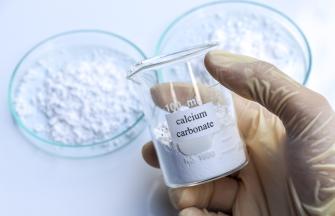
Do you have a question about this service? Ask our specialists
Contact us
Innovative products and solutions
Our innovation teams strive to develop new products, solutions, and services that answer the need of the markets. It also leads to new business models that are more sustainable and more integrated with our customers.
Beyond achieving new technical performances:
- we are creating new products and solutions intended to improve application process efficiency and energy consumption,
- we reduce environmental impact and CO2 direct emissions,
- we develop circularity to preserve natural resources,
- we favor ease of use and safety.
Selected examples of innovative unique products and solutions Carmeuse has leveraged on the market:
- Carmeuse, based on its expertise in lime for soil improvement and stabilization in civil engineering applications, has developed a product range called ViaCalco®. This range performs across a wide variety of soil types and incorporates recycled components. This not only provides additional features but also reduces the product’s footprint, contributing to a more sustainable environmental and technological impact for earthworks.
- A new lime-based product for agriculture, TerraCalco® 95, has been designed to enhance the chemical, physical, and microbiological properties of agricultural soils. It boasts a high neutralizing value and demonstrates effectiveness in a short time. Its granulated form makes it easy to apply.
- CleanCalco® HPV, a new type of hydrated lime, has been developed for use in dry Flue Gas Cleaning. It has a high specific surface and a well-distributed porous volume, which allows for up to 30% reduction in both reagent consumption and associated residues after treatment, compared to standard hydrated lime.
- CodeCal, a type of quicklime with delayed reactivity, is designed for use in sewage sludge treatment. Its delayed reaction with water enables it to be applied prior to filtration or decantation, thereby enhancing the dewatering process. Utilizing CodeCal in the sludge dewatering and sanitizing process can significantly reduce the volume of sludge and the overall cost of sludge management. Moreover, it facilitates the valorization of the treated sludge in agriculture.




